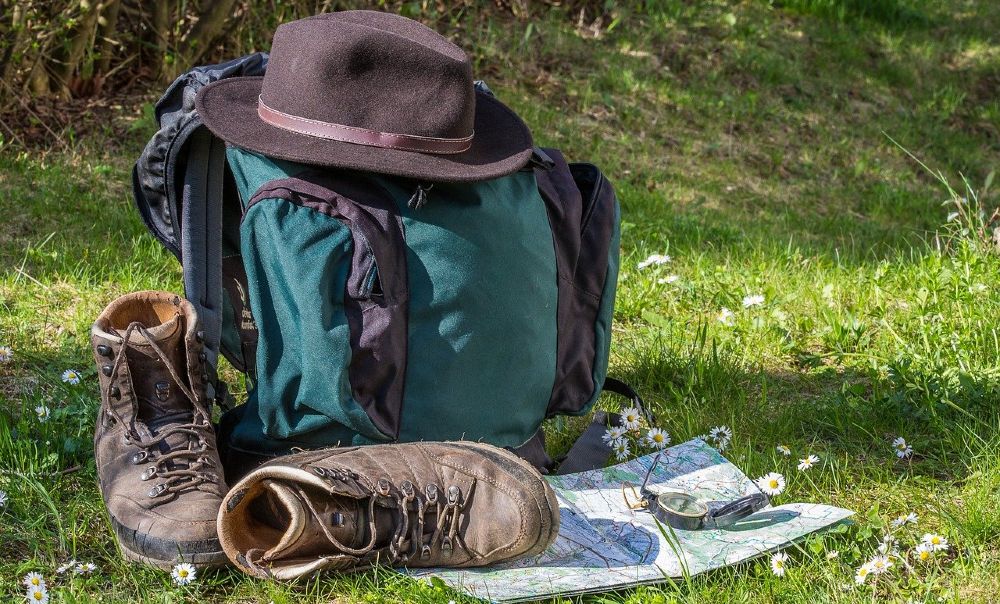What Backpackers Should Keep In Mind When Hiking in Japan
Backpacking has become an increasingly popular activity for outdoor-lovers of all ages and stages, across the world. This is also very much the case in Japan, a country stretching approximately 3000 kilometers long, with a varied terrain including epic mountain ranges, lush forests, and a vast coastline. The country's hiking scene attracts intrepid backpackers from both near and far alike.
However, like with any outdoor activity, there are certain safety and practical guidelines that all backpackers should become familiar with, even if the terrain or excursion seems fit for a beginner. Whether you are a novice or an old pro, this one is for you as you prepare to tackle the backpacking outdoor scene in Japan, and beyond.

Climbing to the summit of Mt. Fuji to see the sunrise is a popular and strenuous hike.
What Is Backpacking?
Backpacking is typically a hiking trip where you carry your supplies in your backpack and use these to camp in the wilderness. It can either be overnight or multiple-night trips. Backpacking attracts many people as it is an affordable, active way of exploring an area. It has become a very popular hobby as people enjoy the independence that comes with it, as well as being able to explore the scenery of a region in an up-close way.
Japan is a mountainous region with some peaks reaching as high as 3700 meters. Backpacking in Japan has been bringing in local and foreign tourists for decades. People are also attracted to the safety of Japan, which is particularly important to solo travelers. Due to its varied terrain, and distinctive seasons, the climate of the area is going to have an impact on your outdoor backpacking experience.
For instance, in harsh winter in some particularly high regions of Japan, it will be too cold and snow-covered and not ideal conditions for hiking. Your warmer, shoulder-season months make for more ideal backpacking weather, but obviously, extreme heat is a consideration too. So it's best to check the recommended time of year to hike in the region you are intending to visit.
What To Pack In My Backpack?
What you choose to include in your pack can be a personal decision. However, there are certain musts that you need to remember. If you don't consult a backpacking gear checklist, you might be very sorry and uncomfortable at some point in your journey. As discussed above, depending on the climate of the region you're traversing, your packing list will vary.
For instance, in cold climates, you will need a thermal sleeping bag, as well as warm gear for cold evenings and mornings like gloves, hats, and socks. However, for warmer areas, you might want a swimming costume for dipping in reservoir or river, and likely a much thinner, lighter sleeping bag. Cooking utensils, gas cooker, mosquito repellent, roll mat, map, and dehydrated foods are just some of the other essential items to include in your kit.

A good quality backpack and boots are just a couple of the essential items for any backpacker.
Backpacking Buddy
While many backpackers travel alone, it is advisable, particularly for newer backpackers, to have a buddy for your trips. That way, you can assist each other as well as fetch help in the event of an emergency. Imagine you've just arrived at your campsite for the evening, the wind is gusting and you cannot pitch your tent by yourself. Your buddy is nearby to lend you a hand, and you are there to help them with theirs.
If going solo is more your thing, it is still important to touch base with someone either back home, wherever home is, or with your local Japanese accommodation, or national park board. That way, if anything happens, someone is keeping a record of your progress on your journey. For instance, your hotel will know to expect you on a certain date, and if you were not to arrive and there was any problem contacting you, they would notify the relevant authorities.
While it may seem a bit dark and unsettling to think this way, it is an unfortunate but important reality. Therefore, you would need to ensure you have a mobile phone as well as a rechargeable power bank in your pack to make contact if necessary. To preserve your battery life further, you should probably keep your phone off in your bag until you need it.
Backpacking is a leisure activity that has grown from a niche interest to a worldwide, mainstream hobby. In Japan, the story is the same, with both local and foreign backpackers flocking to the many trails throughout the country. While this hobby is about freedom and flexibility, there are several important aspects to be aware of, for both newer and more experienced hikers.
Related content
